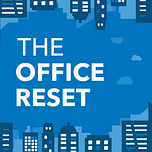There’s been a LOT of excitement around Mars recently. And I mean the planet Mars, not the Mars bar company (although that’s pretty exciting too). The first three flights of the Mars helicopter Ingenuity has gone so well that it has officially been given permission to help its buddy, the Perseverance Rover to hunt for signs of life.
Meanwhile, SpaceX founder Elon Musk reckons he will get humans to Mars by as early as 2026, even if a bunch of people die in the process. Musk has also hinted how he might govern Mars once he’s established a city by 2050. In the terms of service agreement for beta users of SpaceX’s Starlink satellite internet service, the following provision has been added:
For Services provided on Mars, or in transit to Mars via Starship or other colonization spacecraft, the parties recognize Mars as a free planet and that no Earth-based government has authority or sovereignty over Martian activities. Accordingly, Disputes will be settled through self-governing principles, established in good faith, at the time of Martian settlement.
Whether this clause is even valid is up for debate, but it certainly highlights SpaceX’s ambitions for the martian planet. SpaceX also won NASA’s $2.9 billion contract to develop a spacecraft to land astronauts on the moon, beating Jeff Bezos’s Blue Origin aerospace company.
Basically stuff is happening, and it’s happening fast.
Which means that pretty soon, companies might start thinking about sending workers to space. And this is where space lawyer Michelle L.D. Hanlon comes in on this episode.
If humans do ever make it to the red planet, what laws will be needed to protect their human rights? How will companies deal with communication issues? And if Elon Musk makes it to Mars first — how might he govern it?
Michelle on the quandary of being fired:
You will need to negotiate what it means to be relieved of duty. And what the responsibility of the company is to you, once you have been relieved of duty. Certainly, if you have been having problems with an employee, you don’t want to fire them if you can’t get them off the planet for 2 years because that’s not really going to be good for morale. There’s going to have to be some sort of understanding that if the employee is not performing - maybe their duties are reduced for the benefit of the team. But you really can’t afford to send somebody to Mars and let them just be idle.
Michelle on sharing expertise between communities:
The different communities ought to have some sort of agreement with each other to swap employees. Why should you have 3 different dieticians? Why wouldn’t you just have one that everyone can share? That would be an incredible savings opportunity.

Recommended reads
You can find more podcast episodes on Apple podcasts, Spotify, and other platforms. If you would like to facilitate a discussion or even send some feedback, you can email me at: theofficereset@gmail.com












Share this post